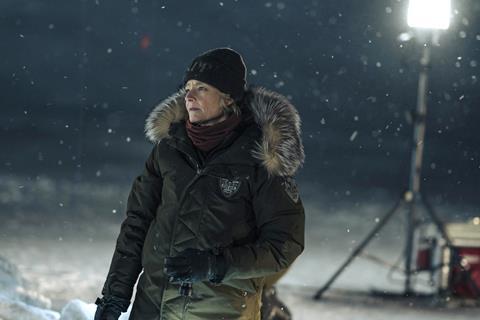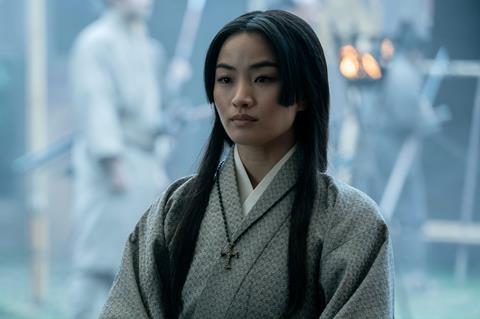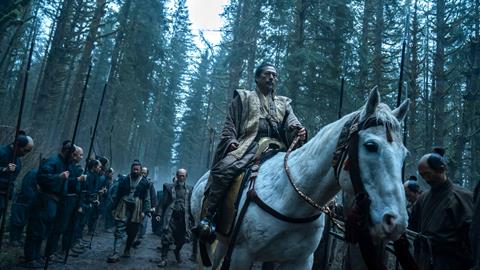Arrested Industries chief executive Anthony Kimble reflects on what the Golden Globes mean for international TV
As I watched the Golden Globe Awards on Sunday, I wondered if we’d reached a major turning point in TV: the US could finally be waking up.
These events usually celebrate the obvious in Hollywood: youth, beauty, big budgets, studio power and, for the most part, American stories and talent.

And yet with the Globe’s TV awards, I found myself surprised and delighted at the roll call of what once might have been considered unlikely winners.
We had two women over 60 winning big: Jodie Foster (True Detective) and Jean Smart (Hacks), three if you include Demi Moore for the film The Substance.
Then there was the brilliantly unconventional Brit Jessica Gunning (Baby Reindeer) as best supporting actress, and three Japanese stars from Shōgun - Anna Sawai, Hiroyuki Sanada and Tadanobu Asano – taking away best actress, best actor and best supporting actor in a drama TV series.
The Japanese-language series was also crowned best drama, while Baby Reindeer – that quirky, non-glamorous indie-led show about a British barman/comedian and his stalker – was best miniseries.

Such long-overdue recognition for the different, the diverse, the quirky and the indie-driven – not to mention the international nature of most of the winners – was reflected in many of the movie wins, too, such as Emilia Perez and The Brutalist.
More reliably perhaps, every awards ceremony has a ‘major transformation’ winner, so thank goodness for Colin Farrell, almost unrecognisable under prosthetic makeup in The Penguin. Ditto for Sebastian Stan in the film A Different Man.
To me, all these wins felt authentic rather than exercises in box-ticking, and they are a stunning reflection of how things are dramatically changing in the hitherto US-dominated entertainment landscape.
In a world of franchises, reboots, sequels and prequels, most of the winning productions – both TV and film – must have been perceived as major risks, especially when first pitched: a three-and-a-half-hour film about a Hungarian architect; a seven-part black comedy about a stalked man dealing with buried trauma; ten episodes about 1600s feudal Japan, shot in Japanese…
For decades, a deal with a US studio was the holy grail for a producer and, boy, we’d all do everything we could to make a project work there.

But as these awards show, things are changing: studio support helps, but they are no longer the only game that matters.
Pandemics, strikes, over-inflated costs and studio salaries in addition to the newer world economics of streamers and the preferences of their subscribers have all chipped away at what went before and opened up a new road ahead.
These winning productions demonstrate the growing influence of risk-taking indie producers and international content creators who increasingly challenge the dominance of US studios in shaping cultural narratives, aided by the big streamers who have lowered the barriers to entry for non-Hollywood creators and invested locally.
This shift also speaks volumes about the changing tastes of global audiences, who now seek a more inclusive and diverse range of stories that reflect the complexities of the world we live in – and need to see more relevant diversity on screen.
This year’s Golden Globes should be lauded as a long-overdue celebration of the global nature of contemporary storytelling. And they’re a salient reminder that borders do not bind talent, creativity, and innovation – nor are awards solely the preserve of a few big organisations.

Ultimately, these awards should provide a wake-up call to a US studio system just starting to lean into the international market for inspiration, talent and funding. And this, in turn, should be heartening news for creatives already working internationally and taking risks.
TV’s current challenges are unlikely to disappear anytime soon, but the golden glow cast by these Golden Globes and the seismic changes they represent fill me with hope.
So, what did the Golden Globes tell us? Dare to be different and original. Risks can bring rewards. Be diverse - but authentically so. Non-English language stories and productions can attract big audiences. US Studio backing is not essential to global success. Not every series needs a sub-30-year-old beauty in the lead. And, maybe, don’t underestimate the power of prosthetics!








No comments yet